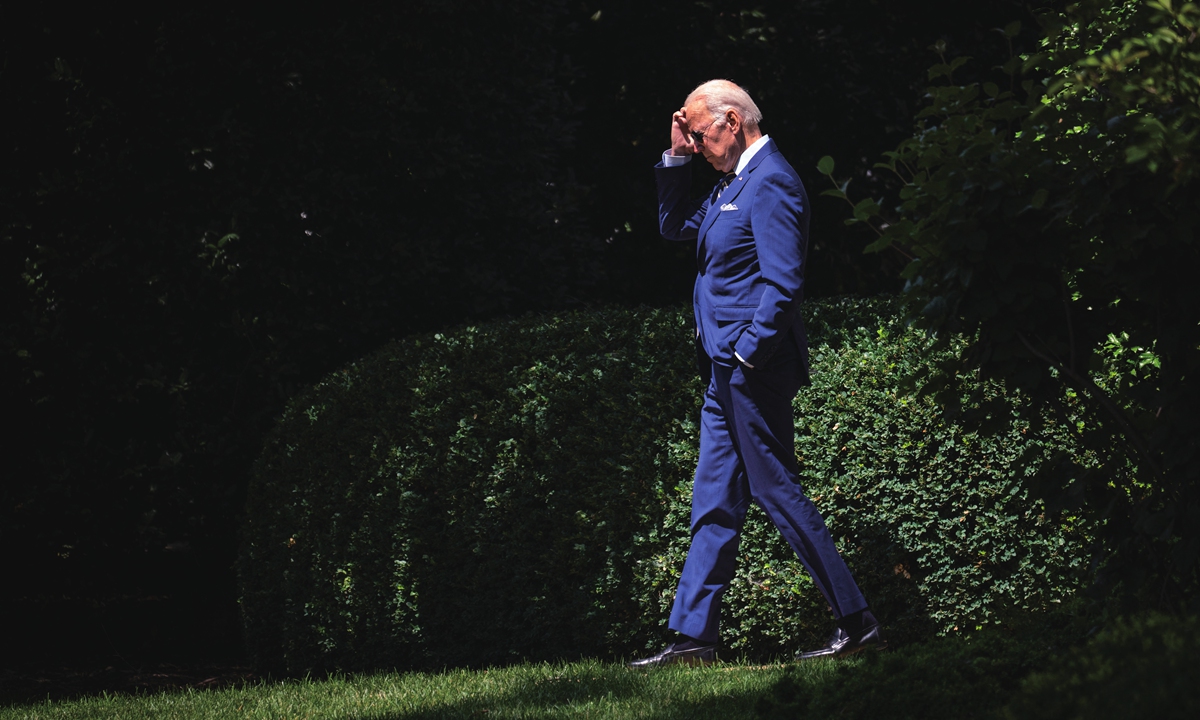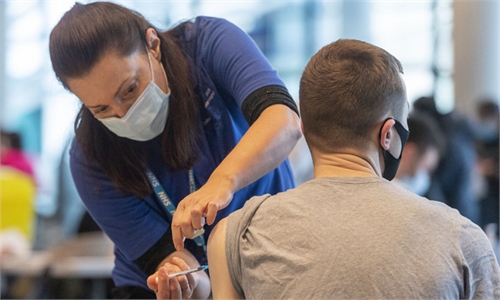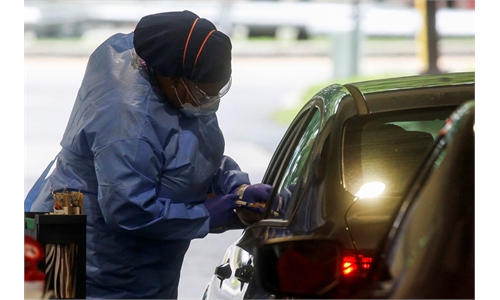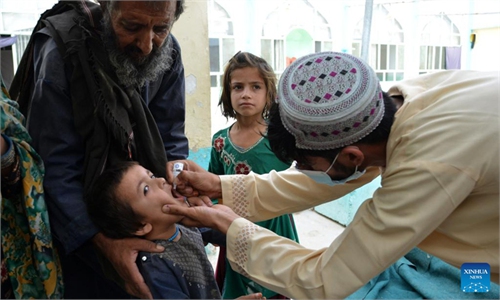Chinese experts warn of higher risk of COVID-19 rebound among elderly after Biden's case

US President Joe Biden, who is fully vaccinated and received two boosters, tested positive for COVID-19 on July 21, 2022, and was "experiencing very mild symptoms," according to the White House. The photo shows Biden departing the Oval Office and walking to Marine One on the South Lawn of the White House on July 20, 2022 in Washington. Photo: AFP
The rebound COVID-19 infection of US President Joe Biden following a course of Paxlovid has cast a spotlight on the phenomenon in the US. Chinese doctors with experience in treating the disease said on Wednesday that rebound infections mostly occur in elderly people or those with weak immune systems, calling for adjusted isolation guidelines and prolonged duration of drug application for these groups.
Biden continued to test positive for COVID-19 on Tuesday in what doctors described as a "rebound" case of the virus. He showed a "loose cough" though "his temperature, pulse, blood pressure, respiratory rate and oxygen saturation remain entirely normal," the Voice of America (VOA) reported on Tuesday.
Biden, 79, first tested positive in late July and was cleared from isolation on July 27 after taking a course of the antiviral drug Paxlovid produced by Pfizer. He returned to isolation after testing positive again on Saturday, according to VOA.
Biden's case caught public attention in the US, which has reported more than 90 million cases, as many people worry this will happen to them, and there are no clear guidelines from the national authorities on this.
COVID-19 rebounds are characterized by a recurrence of symptoms or a new positive viral test after having tested negative, according to a health advisory the US Centers for Disease Control and Prevention (CDC) issued in May.
Rebound cases usually have had mild illness; there are no reports of severe disease. There is currently no evidence that additional treatment is needed with Paxlovid or other anti-SARS-CoV-2 therapies in cases where a COVID-19 rebound is suspected, according to the advisory.
Chen Xi, an assistant professor of public health at Yale University, told the Global Times that it is not clinically uncommon for COVID-19 patients to test positive again following usage of Paxlovid. But patients with rebound infections normally show no or very light symptoms.
But amid public concerns after Biden's rebound, some US experts and media outlets started to call for more detailed and clear guidelines.
Guidelines from the CDC are nuanced but a little confusing, according to a report of the Washington Post on Monday. Those guidelines are under review and may change. Several infectious disease experts said they believe patients with COVID-19 should have a negative antigen test - which gives results within minutes - before exiting isolation. The CDC currently leaves that as an option and does not explicitly recommend it.
The important thing is that every case is unique, experts said. The guidelines offer a general framework, but patients should take into account their different circumstances, priorities and resources to assess risk, read the report.
Lu Hongzhou, head of the Third People's Hospital of Shenzhen and an experienced Chinese doctor in combating the COVID-19 epidemic, told the Global Times on Wednesday that there are two scenarios of rebound infections.
The first one usually involves people with weak immune systems like the elderly and people with underlying diseases. The virus in these patients can be suppressed when they are taking the pills, but once the drugs are stopped, the virus becomes active again, according to Lu.
These groups can test positive for a very long time, which would affect their health in the long run, Lu said.
The second scenario of a rebound infection is that a patient tested positive again after 14 days from being discharged from the hospital. In this case, the patient is usually expelling virus particles and is not contagious, according to Lu.
As to the first scenario, Lu suggested that the US authorities prolong isolation and medication durations, especially for elderly people and others with underlying diseases.
China approved imports of Paxlovid in February and the Third People's Hospital of Shenzhen has been using it. Lu said that he and his team had observed no rebound infections among young and middle-aged adult patients who used the drug.



